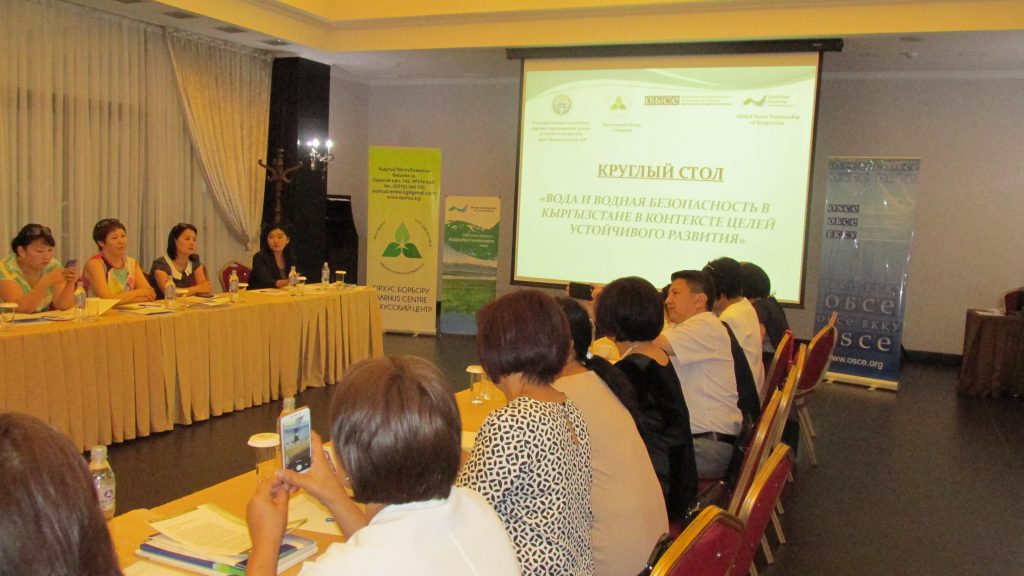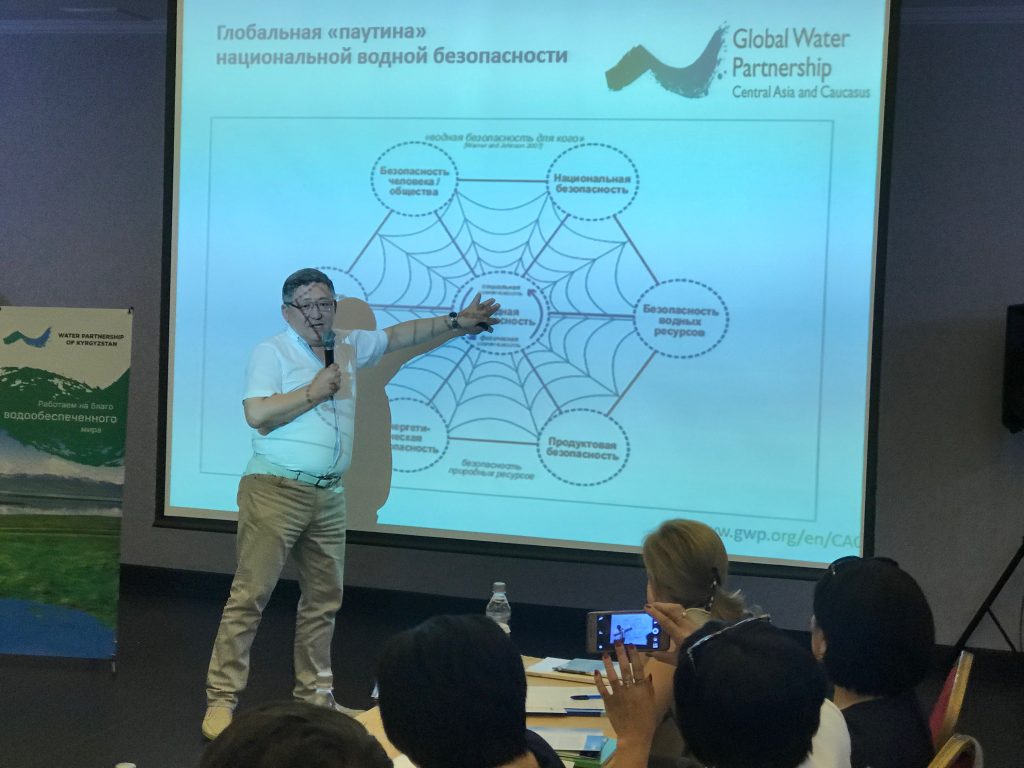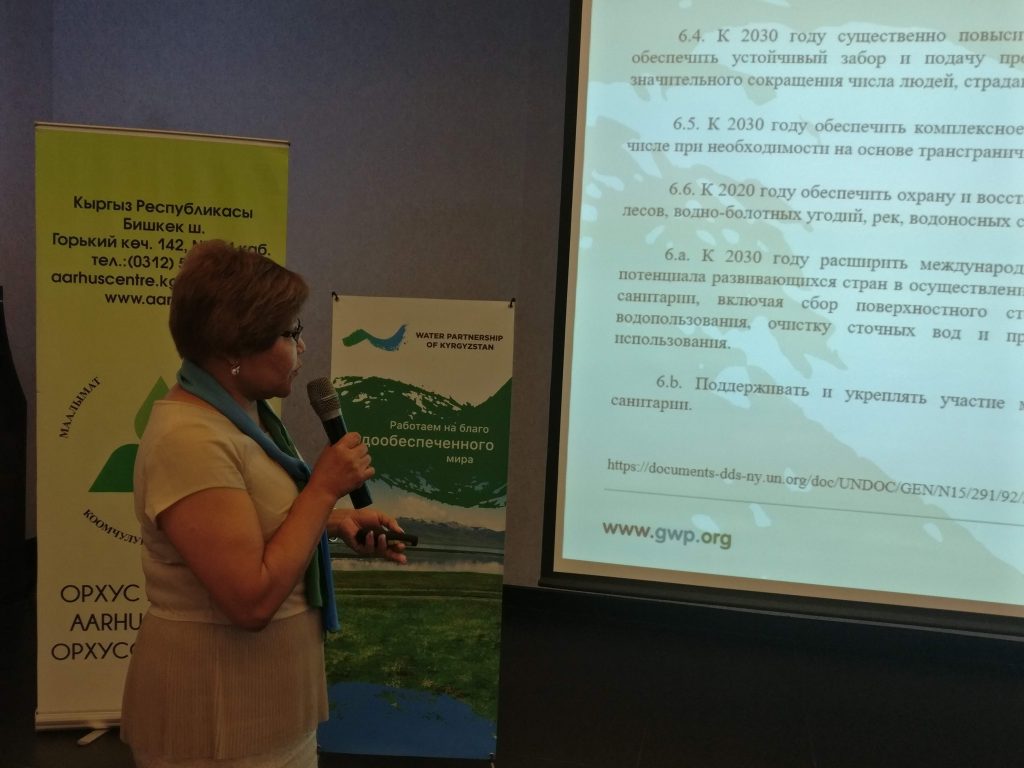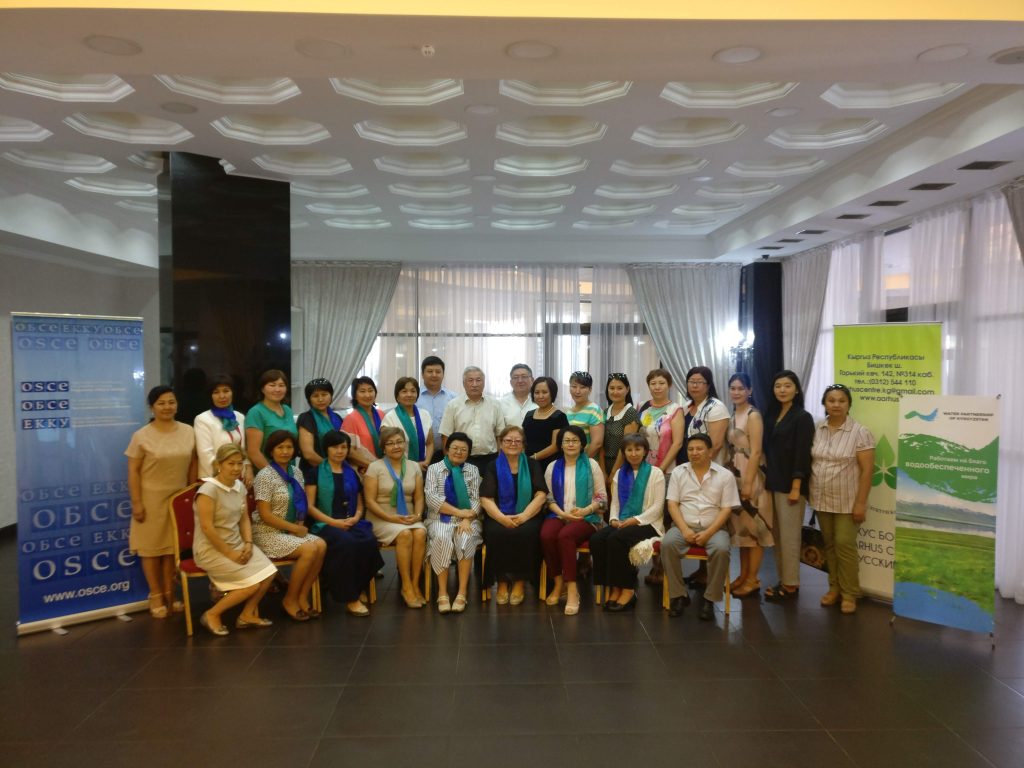Round table on water in Kyrgyzstan
On June 30, 2018, in the conference room of the Janat Hotel, the Aarhus Center in Bishkek together with the NGO “Global water partnership” with the support of the State Agency for Environmental Protection and Forestry under the Government of the Kyrgyz Republic and the OSCE Programme Office in Bishkek held a round table on “Water and water security in the Kyrgyz Republic in the context of sustainable development goals”. The main goal of this event was to discuss with stakeholders water security in Kyrgyzstan and to consider the main problems of water conservation in the future.

The main speaker of the round table was the regional coordinator of the NGO “Global water partnership” A. Jayloobayev, who presented 2 presentations on the “Concept and elements of water security in Kyrgyzstan” and “Using indicators of water security in Kyrgyzstan to make management decisions.” Speaker presented materials on the state of water supplies to date, what is the consumption of drinking water by region, the problems of preserving and consuming water reserves for production needs, and records of the state of water and its reserves.

Then, the coordinator of the “Global water partnership” K.Musabaeva presented 2 presentations on the “Gender issues of access to safe drinking water” and “Water for Sustainable Development development for 2018-2028 years”. She presented documentary information collected by experts on gender participation in the use of drinking water today both in the regions and in Kyrgyzstan as a whole, the participation of women in decision-making on the use of water in domestic and industrial needs, the problems of non-observance of sanitary norms in drinking water, as well as international participation of countries in the conservation of water resources of the planet and the attitude of decision-makers, respect for their use in national interests.

At the end of all presentations, the round table participants held a discussion that was enthusiastic and stormy. All speakers noted the urgency of discussing the problem and the need for early measures to prevent the problem of shortage of drinking water in the future.





























